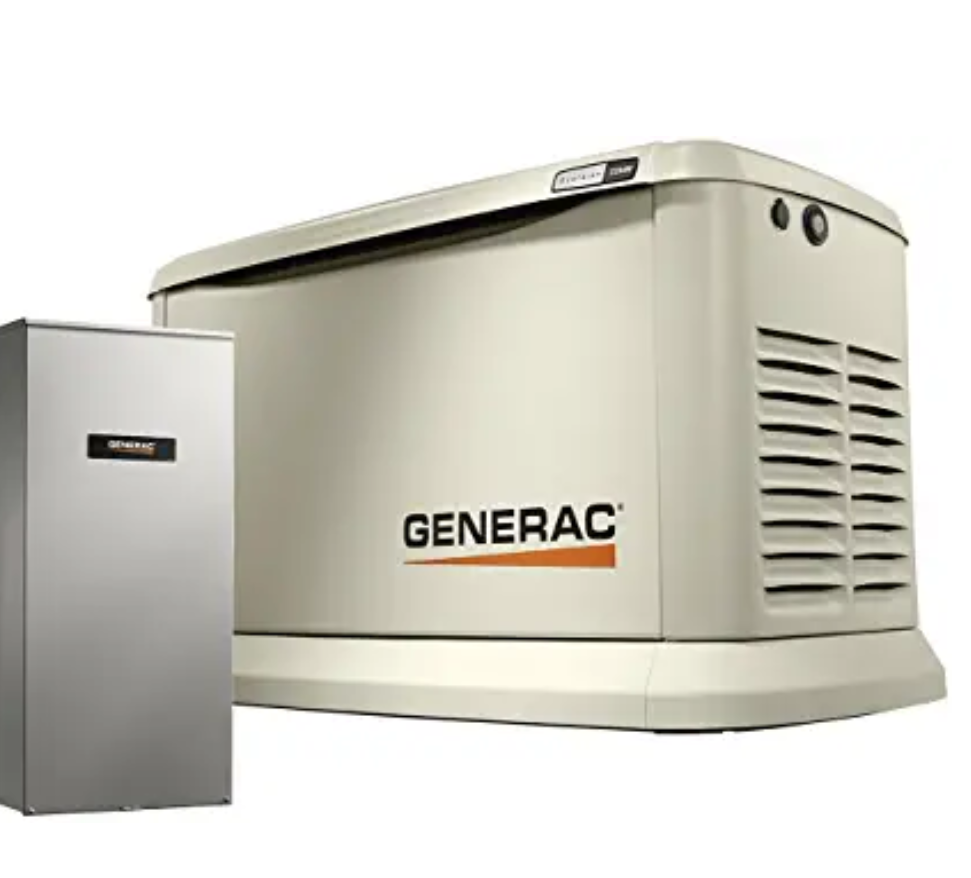
Winter is just around the corner. That means we will be witnessing ice storms and snows more often, and winter power outages for that matter may increase. A lot of people in Denver, Colorado may be in love with winter but the potential electricity outages caused by ice and heavy snow can be too much of a hassle. At such times, however, an electric generator can spare you of any inconveniences if the power is out. Now the question is, is your standby generator all set for the cold season? Here’s some tips by a Denver home generator electrician.
Electrical generators have become a necessity not just in Denver, Colorado but all across the country. If you don’t already have a home generator, then knowing a Denver home-generator installation service, will make setting up the unit easy. If you’ve had a home generator for a while, then for the sake of safety and reliability, your generator should also be maintained properly and inspected rigorously prior to usage.
Electric Generators Work Harder in Winter
In this modern age, highly advanced engines have been developed with a more durable and reliable mechanism. However, such advancements still haven’t found a way for engines to withstand the cold. In fact, starting the generator in the cold season is trickier as the fuel might not efficiently burn or the oil may have thickened thickening.
The good news is; electric generators are actually not hard nor too costly to maintain. All it needs is a bit of attention, pre-season, and regular maintenance with the help of your Denver home generator electrician to maintain its reliability and keep your heaters up; so you won’t be left embracing the freezing temperatures.
You can either surf the internet and search for “electrician near me” to take care of the upkeep of your standby generator or you can follow a DIY approach to get it winter-ready. Should you decide to follow the latter, read the tips below:
· If you do not have the knowledge and experience about the job, then seek help.
Generator repair and maintenance, i.e. fixing a standby or a portable generator system, may sound doable but hardware store and retail chain reps have been reiterating the perils that can take place along the way and that such dangerous tasks are better left in the hands of a professional electrician, especially if you do not have enough knowledge and experience at it. As the saying goes, “better be safe than sorry.”
· Research and familiarize.
Now, if you’re not experienced with using a generator during an outage, you may want to familiarize yourself with the generator. Know that some generators differ from each other. To be more ready come emergency outages arise, start familiarizing the ins and outs of generator operation prior to an outage including your setup steps in the dark. In other words, practice like you are facing a real emergency. Only then, you’ll know you are ready. Contact your residential electrician to familiarize yourself with what it takes to get the power going again.
· Know how fast your generator consumes fuel.
A perfectly working generator is still useless without fuel. So, store more than enough fuel; do not settle with just a small container. On average, a 24/7 operating generator can take about 12 to 20 gallons a day but to have a closer estimate, take a look at your machine’s wattage.
Using a fuel stabilizer will help keep your unused fuel from being wasted and your generator free from damage but make sure you follow the instructions carefully.
· Monitoring and replacing the oil on your generator on a regular basis is a MUST.
Oil plays a major role in ensuring efficiency and extending the life of your generator. As part of the maintenance program, make sure the oil levels are checked from time to time and the full mark is reached at all times. After using the generator for the first five hours, an oil replacement is necessary and then the next replacement would be 1000 hours after.
Just a warning: Using the wrong type of oil for your generator may cause damages and affect its performance.
· Examine your generator on a regular basis.
This process will ensure that parts like fuel filter, air filter, and spark plug are still in perfectly safe and efficient condition. Sometimes, hiring an electrician nearby may be necessary.
Tip: To eliminate moisture, lubricate the parts, and recharge the battery. At least once, run a month thorough generator inspection (which takes about 20 minutes).
· Transfer Switch will help you keep safe.
This will help keep your home appliances, wiring, and generator from being overloaded. Moreover, this prevents power back feeding that can result to fatal shocks or circuit breaks.
· Execute the job smartly and safely.
This includes placing your generator at a strategic location to minimize the outage time. Also, never use a generator inside your garage, basement, home, or shed to keep away from the odorless chemical hazards.
Is your generator set for winter? Be safe and sound in the cold days. Call ElectriCall for professional assistance.